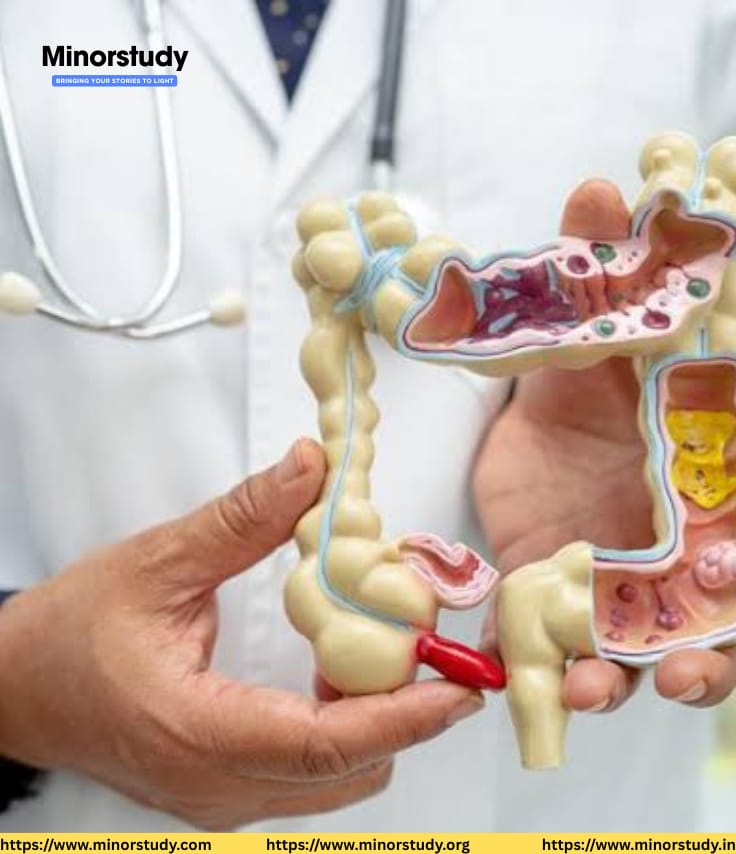👨⚕️ All About Gastroenterologists: History, Significance, Facts, FAQs & Their Powerful Impact on Society
Gastroenterologists: When you eat your favorite food, have a stomach ache, or feel acid reflux burning your chest, you’re relying on the silent efficiency of your digestive system. Behind every gut-related health challenge stands a gastroenterologist, the expert of the gastrointestinal (GI) tract — helping millions live healthier, longer, and pain-free lives.
- 🧬 What is a Gastroenterologist?
- 📜 History of Gastroenterology: From Ancient Observations to Modern Marvels
- 📆 Timeline: Evolution of Gastroenterology
- 💡 7 Life-Changing Reasons Why Gastroenterologists Are Vital
- 1. They Prevent and Detect Colon Cancer Early
- 2. They Treat Chronic Digestive Diseases
- 3. They Save Lives with Emergency Procedures
- 4. They Restore Quality of Life
- 5. They Diagnose Hidden Systemic Illnesses
- 6. They Champion Preventive Health
- 7. They Use Cutting-Edge Technology
- 🧠 Fascinating Facts About Gastroenterologists
- ❓Frequently Asked Questions (FAQs)
- Q1: When should I see a gastroenterologist?
- Q2: Are colonoscopies painful?
- Q3: Do they only deal with the stomach?
- Q4: Can gastroenterologists treat children?
- Q5: How do I maintain gut health?
- 🌍 Societal Significance of Gastroenterologists
- 🎉 Wishing Every Gastroenterologist Worldwide
- 📅 Observance & Awareness Days
- 📌 Important Points at a Glance
- 🧾 Conclusion: Why Gastroenterology Matters in Daily Life
This detailed guide takes you on a journey through the history, evolution, facts, FAQs, observances, and importance of gastroenterologists in a tone that’s both informative and human-centric.
🧬 What is a Gastroenterologist?
A gastroenterologist is a medical doctor who specializes in diagnosing and treating disorders of the digestive system, which includes the esophagus, stomach, intestines, liver, pancreas, and gallbladder.
They are trained to:
Perform procedures like endoscopies, colonoscopies, and liver biopsies
Treat conditions like ulcers, IBS, Crohn’s disease, GERD, liver cirrhosis, and colon cancer
Promote gut health, which is closely tied to overall health, immunity, and even mental well-being
📜 History of Gastroenterology: From Ancient Observations to Modern Marvels
Ancient Egypt & Greece: Physicians like Hippocrates theorized about the importance of digestion. Ancient medical texts describe liver and bowel disorders.
1025 CE: Persian physician Avicenna’s “Canon of Medicine” discussed digestion in detail.
17th Century: William Harvey’s discoveries on blood circulation triggered further anatomical research.
1805: Philipp Bozzini invented the “Lichtleiter”, an early version of the endoscope.
1868: Adolf Kussmaul performed the first esophagogastroscopy using a rigid tube.
20th Century: Introduction of flexible endoscopy, capsule endoscopy, and advanced imaging revolutionized gastroenterology.
Today, it’s a globally respected medical specialty, advancing constantly with AI diagnostics, robotic surgery, and genetic treatments.
📆 Timeline: Evolution of Gastroenterology
| Year | Milestone |
|---|---|
| 400 BCE | Hippocrates describes “gastric disturbances” in early texts |
| 1025 | Avicenna’s Canon of Medicine outlines digestive disorders |
| 1805 | First endoscope prototype developed by Bozzini |
| 1868 | First gastroscopy performed by Kussmaul |
| 1950s | Introduction of fiber optics in endoscopy |
| 1970s | Colonoscopy becomes a standard diagnostic tool |
| 2000s | Capsule endoscopy introduced |
| 2020+ | Integration of AI and robotics in diagnostics and treatments |
💡 7 Life-Changing Reasons Why Gastroenterologists Are Vital
1. They Prevent and Detect Colon Cancer Early
Colon cancer is one of the leading causes of cancer deaths worldwide, yet it’s also highly preventable. Gastroenterologists perform screenings and colonoscopies that detect polyps before they turn cancerous.
2. They Treat Chronic Digestive Diseases
From ulcerative colitis to irritable bowel syndrome (IBS), they help people live normal lives with conditions that would otherwise be painful, embarrassing, or disabling.
3. They Save Lives with Emergency Procedures
When someone has internal bleeding, perforation, or bile duct blockage, gastroenterologists are often the first responders in hospitals, performing life-saving interventions.
4. They Restore Quality of Life
Conditions like GERD, acid reflux, bloating, or constipation may sound minor, but they deeply affect sleep, focus, mood, and overall life quality. These specialists bring lasting relief.
5. They Diagnose Hidden Systemic Illnesses
Many symptoms in the digestive system can indicate bigger problems: liver disease, pancreatic cancer, autoimmune disorders, and more. Their expertise goes beyond digestion — it touches all body systems.
6. They Champion Preventive Health
With increasing awareness about gut microbiome health, probiotics, diet, and inflammation, gastroenterologists guide patients toward preventive, holistic well-being.
7. They Use Cutting-Edge Technology
From high-definition endoscopes to AI-assisted imaging, they lead the way in applying the newest tech for precision treatment.
🧠 Fascinating Facts About Gastroenterologists
Your gut is often called the “second brain”, containing over 100 million neurons.
The average GI tract is 30 feet long.
One gastroenterologist can prevent hundreds of cancer cases through regular screenings.
Gut bacteria outnumber human cells 10 to 1, influencing mood, weight, and immunity.
Colon cancer screening is recommended from age 45 for both men and women.
❓Frequently Asked Questions (FAQs)
Q1: When should I see a gastroenterologist?
If you have symptoms like persistent heartburn, blood in stool, unexplained weight loss, abdominal pain, or a family history of GI diseases, schedule a visit.
Q2: Are colonoscopies painful?
They are generally not painful. Patients are sedated and rarely remember the procedure. Recovery is quick, and the benefits far outweigh any discomfort.
Q3: Do they only deal with the stomach?
No. Gastroenterologists manage disorders related to the entire digestive system, including liver, gallbladder, esophagus, intestines, and pancreas.
Q4: Can gastroenterologists treat children?
Typically, pediatric gastroenterologists handle children’s GI issues, while adult specialists focus on individuals aged 18 and above.
Q5: How do I maintain gut health?
Eat fiber-rich foods
Stay hydrated
Avoid unnecessary antibiotics
Limit alcohol
Stay physically active
Consider probiotics (after medical advice)
🌍 Societal Significance of Gastroenterologists
In modern times, unhealthy diets, processed foods, sedentary lifestyles, and stress are triggering epidemics of gut disorders. Gastroenterologists are more important than ever.
They are the unsung heroes in:
Cancer prevention
Reducing healthcare burden
Treating silent liver epidemics like fatty liver and hepatitis
Educating about gut-brain connection
Guiding dietary and lifestyle shifts in society
🎉 Wishing Every Gastroenterologist Worldwide
💐 A heartfelt thank you to every gastroenterologist who listens, diagnoses, treats, and empowers. You help humanity eat better, live longer, and feel healthier every day.
“May your skill continue to save lives, and your care continue to ease countless stomachs and souls.”
📅 Observance & Awareness Days
World Digestive Health Day – May 29
Liver Awareness Month – October
Colorectal Cancer Awareness Month – March
World Hepatitis Day – July 28
These days help raise awareness about digestive health and encourage early screenings and lifestyle modifications.
📌 Important Points at a Glance
Gastroenterologists are gut, liver, and digestive experts
Vital in cancer detection, prevention, and treatment
Use advanced tools like endoscopy, colonoscopy, imaging, AI
Treat common and complex issues: GERD, IBD, hepatitis, ulcers
Promote long-term digestive and systemic health
🧾 Conclusion: Why Gastroenterology Matters in Daily Life
Whether it’s waking up without acid reflux, enjoying meals without pain, or catching a disease early — gastroenterology touches our lives more intimately than we realize.
These specialists don’t just treat stomach issues; they promote a lifestyle of wellness — where the gut leads the way to full-body health. With digestive diseases rising and gut-brain science booming, gastroenterologists hold the key to many modern health mysteries.
In every city, every hospital, and every colonoscopy room, they work quietly but powerfully — ensuring that your next meal doesn’t come with a cost to your health.
👨⚕️ Final Thought:
From saving lives to improving everyday digestion, gastroenterologists help us do the most basic and beautiful act — enjoy life fully.








